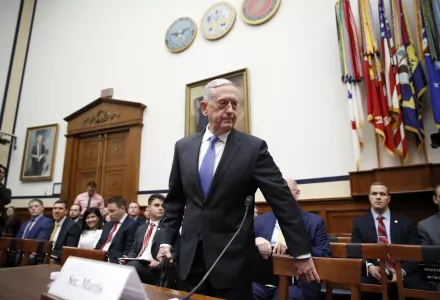
In line with its recently announced National Security Strategy (NSS), the Trump administration's Nuclear Posture Review (NPR) takes an aggressive stance toward China — a position already raising concerns in Beijing.
The NSS breaks with its predecessors by portraying China unambiguously as a global threat, at one point even lumping it in with ISIS. The NPR heaps additional pressure on Beijing by ordering the development of new low-yield warheads and cruise missiles. The Trump administration justifies such moves as a necessary response to the prospect of limited Chinese nuclear strikes. However, China's policy calls for the use of nuclear weapons only in retaliation to a nuclear attack.
In Beijing, analysts close to the government worry that the NPR indicates the U.S. may be shoring up plans to fight and win a nuclear war against China, especially since the NSS now frames China as its primary military rival. Beijing may now feel pressured to expand the size of its nuclear arsenal in response.
Just as U.S. nuclear strategy and arsenal expansions affect those of China, China's nuclear shifts affect India's threat perceptions. Pakistan, in turn, pays close attention to any growth in Indian nuclear forces. To avoid a nuclear chain reaction in Asia, Congress should take a stand against proliferation and refuse to fund these new weapons programs.
O'Donnell, Frank. “Trump's Nuclear Review Could Trigger a Chain Reaction in Asia.” Axios, February 8, 2018





